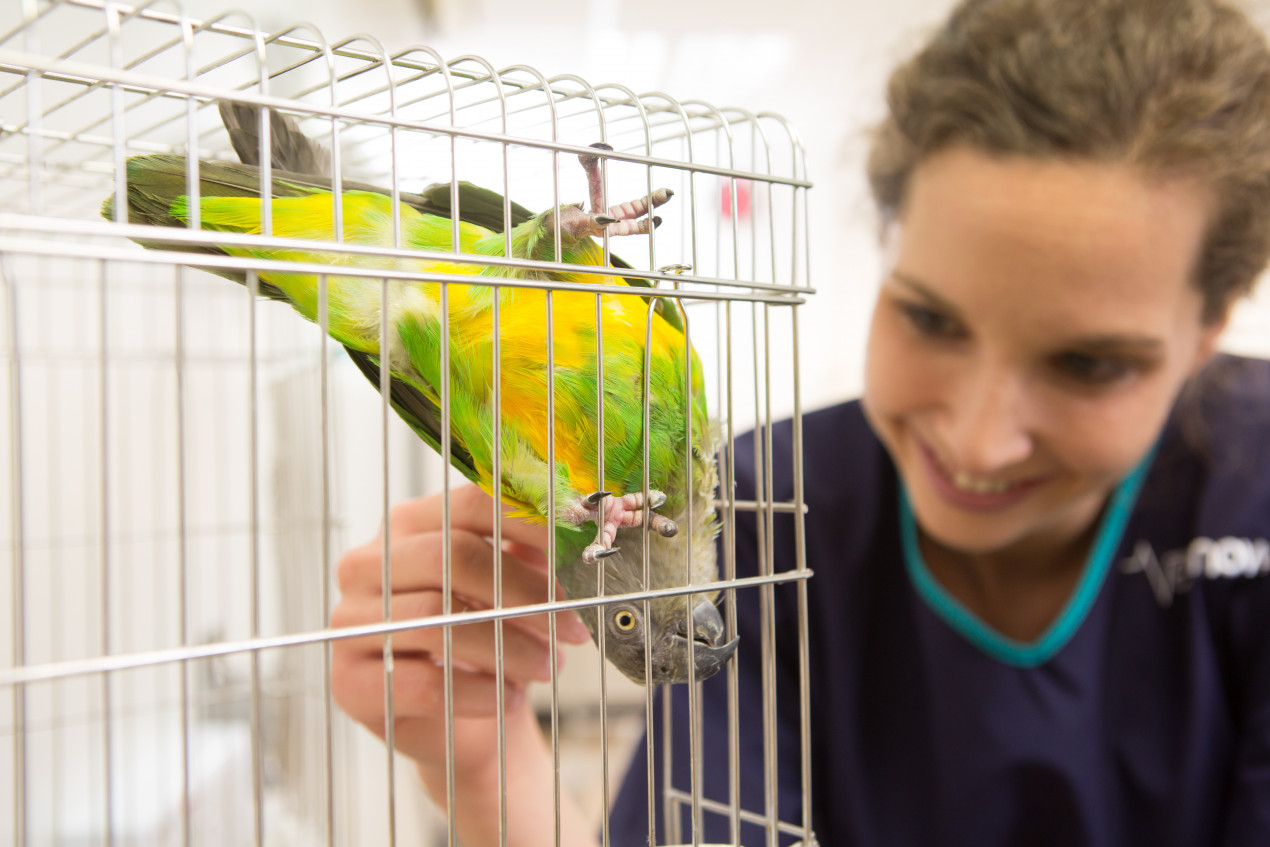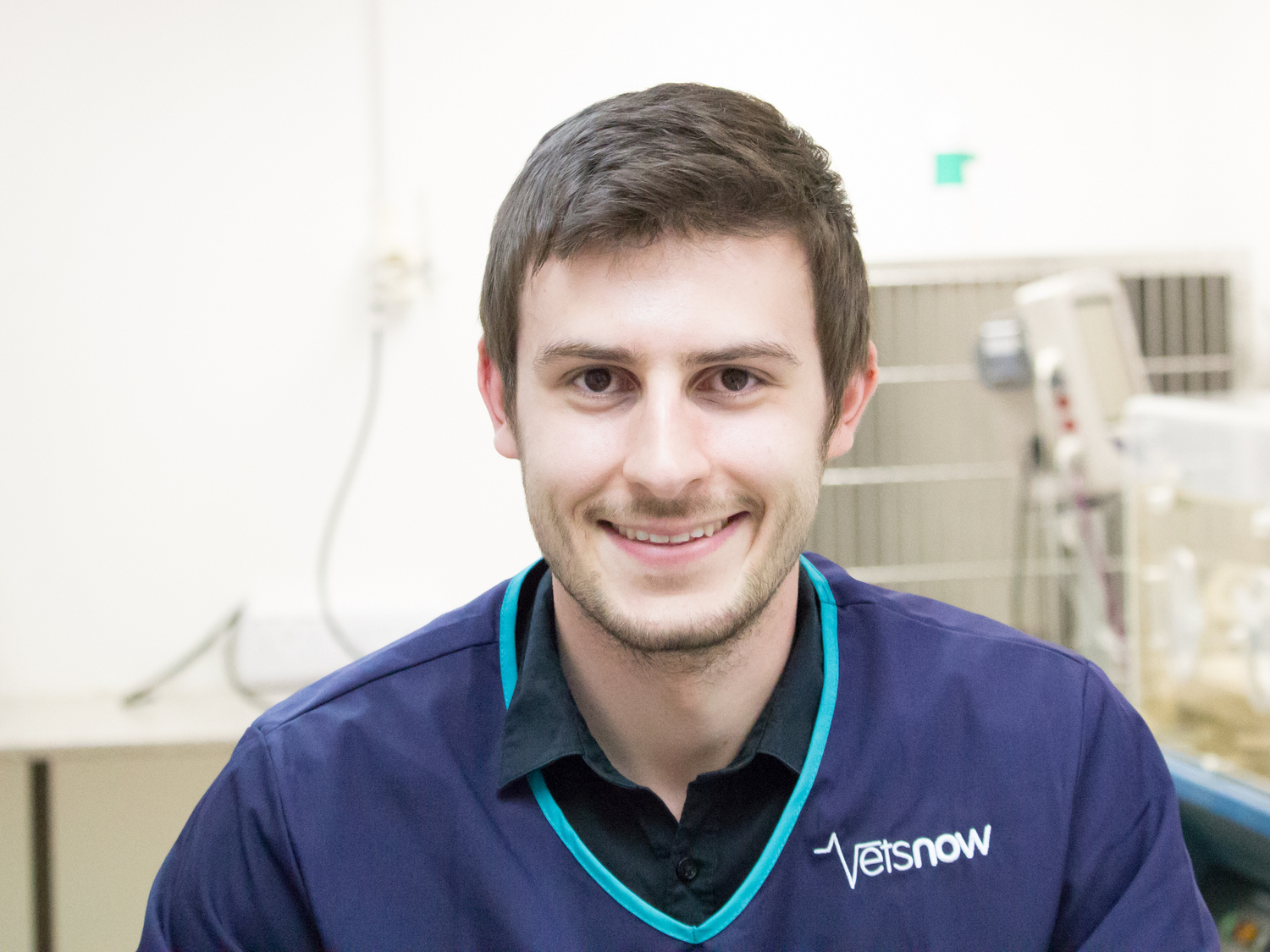Exotics enthusiast gives his take on what makes Vets Now in Swindon a special place to work
Great Western Exotics is renowned for its work with avian and exotic animals. Based in Swindon and part of Vets Now, it’s one of the only full-time staffed, veterinary services of its kind in the country.
For many vets, working at GWE is the fulfilment of a lifelong dream. That’s certainly the case for exotic animal enthusiast Tariq Abou-Zahr, a European College of Zoological Medicine resident, who joined GWE in 2015.
Our content marketing manager Iain Harrison spoke with Tariq, who is 26 and from Cardiff, to learn more about his role.
When did working as a vet become an ambition?
I’m a little different to a lot of vets in that I always knew what I wanted to do, even before I went to university. I always knew I wanted to go into the field of exotics, I’ve always been an exotic animal enthusiast and an exotic animal keeper.
Why did you choose to specialise in avian and exotic veterinary medicine?
I’ve kept birds and reptiles since I was very young and still keep them to this day. I feel I understand exotic animals better than cats and dogs which is different to most other people in the profession. It’s always been my ambition to work in this field.
How did you end up at Vets Now?
I graduated from the University of Bristol in 2014. I initially went into small animal general practice in South Wales. I stayed there for about a year before starting my internship at GWE, which progressed to a three-year residency. I’m currently two-thirds of the way through it. GWE is where it’s at in terms of exotic animal medicine in the UK and I feel very lucky to be in this position. It was always my ambition to work here.
What do you enjoy most about your job?
The variety. We’re lucky in that while exotics is quite a specialist field, we still get to see a lot of different cases. In a day we’ll perhaps treat a peregrine falcon, a bearded dragon, a rabbit, an African grey parrot, and sometimes even an emu, a scorpion or a giant African land snail. So even though exotics is quite a specialist field, it’s also quite broad as well. We also get to work right across the veterinary spectrum, doing medicine, surgery and anaesthesia, which I really enjoy.
What’s the most rewarding aspect?
It’s very rewarding to be presented with a buzzard or a kestrel suffering from a broken wing, and then fixing them. We do orthopaedic surgery, then they go to a rehabilitation centre, and eventually we get to see them released. Treating people’s pets is brilliant but there’s something special about giving something back to conservation.
Has anyone helped you along the way?
I owe a huge amount of gratitude to Neil Forbes, who recently retired from his role as head of GWE. He’s very well known in the exotics world. I’m incredibly grateful to him for giving me the opportunity to work here and for all that he taught me along the way.
What did Neil Forbes teach you?
When I started at Vets Now I was very much a blank sheet of paper. I’d some experience in practice but I’d really only learned the basics. Coming into an environment where people were nurtured and mentored was great for me. There are things that I can see in myself now, even though my former mentor has left, that I realise I picked up from him and use in everyday practice. Simple things like having everything set up and ready before doing a procedure, going through things logically, and working as efficiently as possible. The specialist knowledge I gained working alongside someone with more than 30 years’ experience in this field was invaluable. It’s something you’d never get from a textbook or online. I’m very privileged.
What are your ambitions?
Hopefully I will pass my board exams to become a certified specialist in exotic animal medicine. My aim is to gain my RCVS certificate as well and begin working as a referral specialist treating exotic animals.




